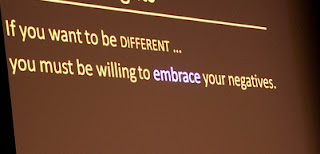Lobell, Ripsman, and Taliaferro
Neoclassical realism, the state, and foreign policy
2009
This volume examines the intervening role of the "state" in neoclassical realism, an emerging school of foreign policy theories.
Specifically, it seeks to explain why, how, and under what conditions the internal characteristics of states
-- the extractive and mobilization capacity of politico-military institutions, the influence of domestic societal actors and interest groups, the degree of state autonomy from society, and the level of elite or societal cohesion-- intervene between the leaders' assessment of international threats and opportunities and the actual diplomatic, military, and foreign economic policies those leaders pursue. Neoclassical realism posits an imperfect "transmission belt" between (systemic incentives and constraints) and (the actual diplomacy.)
Literature review and its limitations: The US grand strategy after the Cold War could not be explained by
a systemic theory—such as neorealist balance of power theory—or a Innenpolitik theory (American domestic
politics). The US emphasized its expansion to Europe and East Asia despite of
low external threat level and domestic political constraints.
-
Neoclassical Realism의 주장: Thus, in neoclassical realism, state (a.k.a. central apparatus,
government institutions) inhibits or facilitates the ability to assess
international threats and opportunities, and to implement specific foreign
policies. There is an ‘imperfect transmission belt’ between systemic
constraints and the actual diplomatic policies.
-
Imperfect transmission belt를
조장하는 intervening
variables: state structure, leader’s perception of
relative power
Key variable: role of “state” in
neoclassical realism
-
The extractive and mobilization
capacity of politico-military institutions
-
The influence of domestic
societal actors and interest groups
-
The degree of state autonomy
from society
-
The level of elite or societal
cohesion
cf. Reductionism(환원주의): 내부적 요소와 개인의 행동이라는 단일 레벨의 기본적인 요소로 복잡한 전체를 설명하려는 경향
Neoclassical
realism presents a “top-down” conception of the state. It means, Systemic forces à
(ultimately drive) external behavior.
l Relative
power distribution(iv)à domestic constraints(intervening var) à
foreign policy(dv)
State is
epitomized by a “nationanl security
executive” (head of government + the ministers, officials making foreign
security policy). This executive (sitting between the state and the
international system) have priviliged
information from politico-military apparatus, perceive systemic
constraints, and deduce the national interest. (엘리트주의. 정보독점과 판단독점)
Claim of this writing(이 연구의 주장): The US grand strategies (i.e. Bush doctrine, the 2003 invasion of
Iraq, and fight against Islamist terrorism in the Middle East) are outcomes of
1) executive branch dominance in national security, 2) policy entrepreneurship
of neoconservatives within the administration and thinktanks, 3) and the
dominance of Wilsonian ideals in US foreign policy.
Research Questions:
1.
Threat assessment: How do
states (or decision-makers) assess international threats? Who are the relevant
actors within the state? How are disagreements within the state and appropriate
remedies?
2.
Strategic adjustment: Who
decides how to respond to threats? To what extent can domestic actors
bargain/influence foreign policies? What bargains do leaders need to strike
with domestic actors?
3.
Resource extraction, domestic
mobilization, policy implementation: How do states mobilize the resources to
pursue their security policy? How much power needed to mobilize resources? What
determines who is more successful in bargaining between the state and societal
groups?
Details
-
Distortion: Neoclassical
realism suggests that “elite perceptions and calculations” of international pressures
and a “lack of consensus” within the leadership skew the process of net
assessment. Furthermore, even if elites correctly perceive the nature and
magnitude of international threats, domestic political dynamics and force them
into pursuing counterproductive policies. (Lebow)
-
FPE, Foreign Policy Executive:
According to Lobell, FPE has responsibility for grand strategic planning. It is
a group of top officials standing at the intersection of international and
domestic politics. The FPE must forge a coalition with various societal elites
in economic sectors and interest groups.
-
Critique of liberal
theories(Sterling-Folker): How can states simultaneously be both trading
partners and security threats? How is it possible for military rivals to
continue trading with each other despite the risk of escalating to war? Liberal
theories ignore nationalism and unilateralism. According to Sterling-Folker,
neoclassical realism can resolve this paradox. Group/national identity plays an
enduring role in domestic/foreign policies. (i.e. interactive combination of
national subgroups in Taiwan, China and the US drove their respective
confrontational foreign policies)
-
Systemic variables within
domestic-level (Ropsman): Ripsman hypothesizes that the more influential
domestic actors will be those with sufficient power to remove national
executives from office (i.e. ballot box, coups d’etat).
My thoughts (내 생각 및 추가 발전 방향)
-
Domestic constraint가 intervening variable이라는 것은 일리있는 이야기. 그러나
domestic eliticism도 있지만 populism도
있음. (i.e. 일본 불매운동 à 지소미아 연장
거부) 엘리트들(Lobell이 말하는 foreign policy executive(FPE))이 결정은 하지만, 여론을
무시할 수 없음.













